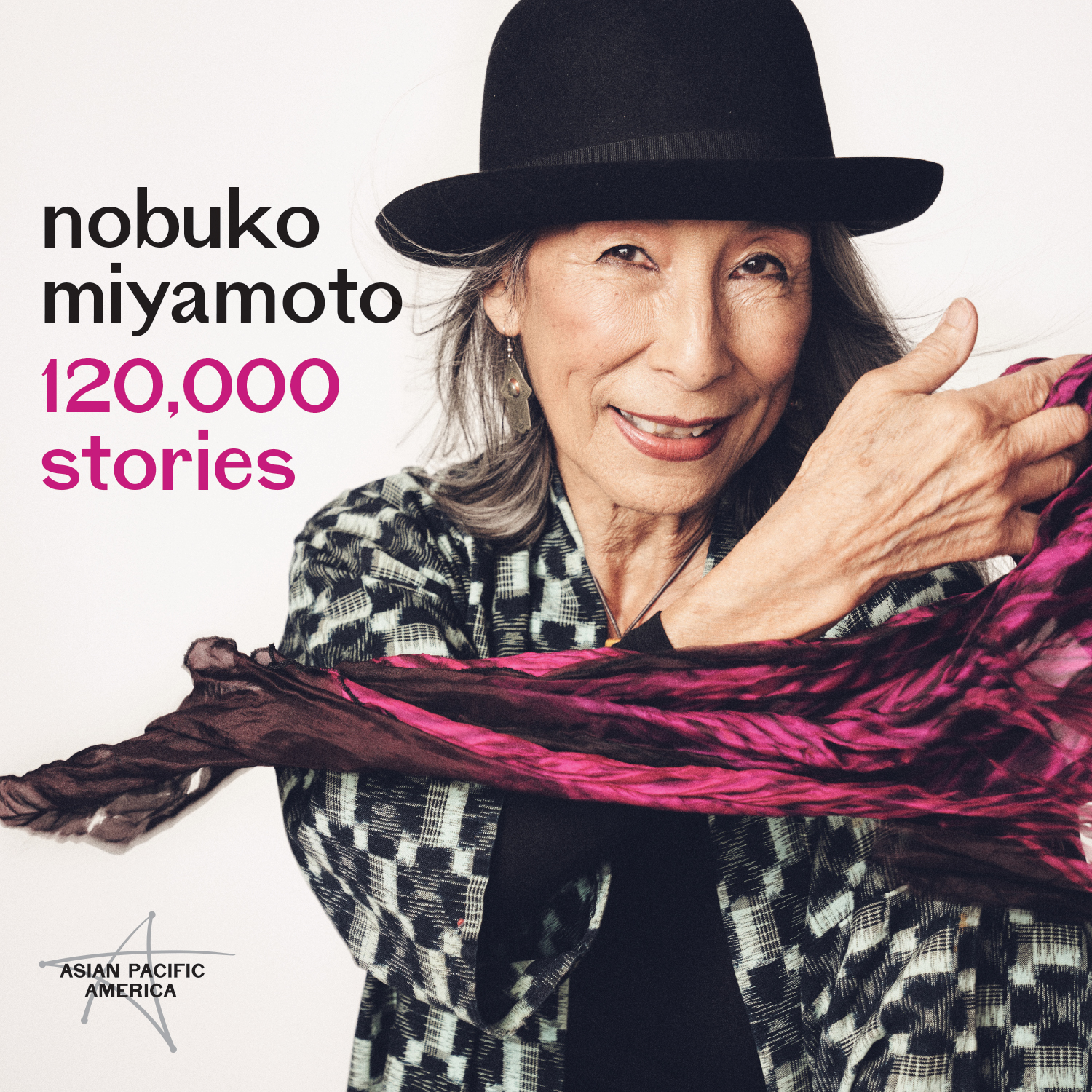-

Blog\SFW40590_Cover_1500.jpg
Announcing Nobuko Miyamoto's 120,000 Stories
Singer, artist, and activist Nobuko Miyamoto has announced her newest album 120,000 Stories, out January 29th and available now for pre-order. A previous album of hers was the1973’s seminal A Grain of Sand: Music for the Struggle by Asians in America, released by Barbara Dane’s Paredon label, which was the first album of its kind detailing the experiences of Asian Americans in the 20th century. 120,000 Stories continues that legacy; its title evokes the approximate number of people of Japanese ancestry who were incarcerated in camps run by the United States government during World War II. It collects new music, recorded with GRAMMY-winner Quetzal Flores in Los Angeles, that speaks to issues such as Asian American stereotypes and the Black Lives Matter movement, as well as music from A Grain of Sand, recordings of her late-1970s group Warriors of the Rainbow, and performances from various stage productions throughout the past several decades.
Miyamoto has shared the first single, “What Time Is It on the Clock of the World?,” an impassioned plea for climate justice. In the album’s track notes, Miyamoto says, “Grace Lee Boggs, activist/philosopher, often posed this question in her talks. If she were still here, she would be asking: if the world can stop in its tracks for COVID-19, why can’t we do it for Climate Change?”
Born in Los Angeles in 1939, Nobuko was a young child when the U.S. entered World War II. Along with other Japanese Americans in Southern California, she and her family were rounded up and confined on the converted grounds of the Santa Anita racetrack. They later moved across Montana, Idaho, and Utah—following work and finding refuge with the relatives of Nobuko's white Mormon grandmother and Japanese grandfather before eventually resettling back in Southern California after the war. In spite of this instability, her parents encouraged her study of music and dance. And by the 1960s, she had been a scholarship student at the American School of Dance in Hollywood; performed with Cuban prima ballerina Alicia Alonso’s company; and was cast in the original Broadway production of Flower Drum Song (1958) and the film adaptations of The King and I (1955) and West Side Story (1961). While living in New York City during the 1960s and early '70s, Nobuko exchanged her aspirations in mainstream entertainment for a troubadour's service in the civil rights movement. She marched, occupied buildings, and shared stages alongside artists and activists protesting against the war in Southeast Asia and displacements caused by urban renewal. She gave her voice in support of those fighting for Puerto Rican independence and Black liberation. She found community among a tight-knit group of activists including the founders of Asian Americans for Action and Basement Workshop. With Chris Iijima, Nobuko put music to these struggles. Later, joined by Charlie Chin, they performed at Buddhist temples, churches, colleges, coffeehouses, prisons, and parks in New York and across the country, culminating their journey in the album A Grain of Sand.
With neither guideposts nor role models for reference, Nobuko improvised her own artistic path as a songwriter, dancer, and theater artist. Across five decades, she forged a creative practice that thrives on collaboration and continues today with a fire for justice. Now entering her eighth decade, Nobuko Miyamoto is unstoppable—firing up new projects, speaking out for racial justice, and undertaking new collaborations. Her autobiography Not Yo' Butterfly: My Long Song of Relocation, Race, Love, and Revolution will be published by the University of California Press in summer 2021. Never a bystander, Nobuko has been active in movements that envision radical societal change, her creative course shaped by their energy and contradictions. Ever hopeful, she sings bravely and without cynicism. In the songs on 120,000 Stories, one hears the Revolution colliding with Rodgers and Hammerstein, her reverence for the ancient and the emergent, and her optimism that music can strengthen and connect communities, song by song, verse by verse.
120,00 Stories is the second release in Smithsonian Folkways’ Asian Pacific America Series, which features exceptional contemporary voices and sonic expressions across diverse musical genres. Whether reinterpreting traditional repertoire and styles or speaking directly to collective experiences through song, the artists in the series expand the American soundscape through their creative explorations of identity, community, and diaspora. This series supported in part through Federal funds from the Asian Pacific American Initiatives pool administered by the Smithsonian Asian Pacific American Center.
Announcing Nobuko Miyamoto's 120,000 Stories | Smithsonian Folkways Recordings

